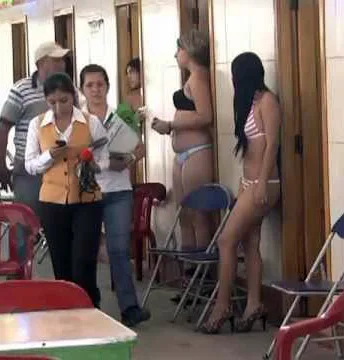Housewives complain about IESS benefits while prostitutes want to join
While the new Law of Labor Justice allows housewives to join the national Social Security (IESS) system, women’s rights groups say the benefits don’t go far enough. Meanwhile, Ecuador’s prostitutes are demanding that they be allowed to join IESS as well.
Andrea Vega of the Womens Collective, who led efforts to include housewives in IESS, said she was disappointed that health care was not included in the benefits. “It is wonderful that we can collect a pension in 20 years but we need health insurance too,” she said. “IESS admitted children into the health program, why not housewives?”
Social Security officials say that housewives are still eligible for the non-IESS public health service, which is open to all Ecuadorians., but Vega says that it is substandard.
The new law allows housewives to join the pension system by paying between $2 and $46.90 a month, depending on family income, but excludes them from receiving health benefits. Critics of the new law say that the government’s withdrawal from paying 40% of operating costs of IESS, puts special strains on the health care system.
As housewives complained about benefits of the new law, the nation’s legally registered prostitutes say they should be included as well.
The Pro-Defense Association for Women says that prostitutes who operate legally and undergo monthly health tests, should be considered for what they are: working women. “We pay our taxes and work under the rules of law, so why can’t we be members of Social Security?” asked Diana Vasquez of Cuenca.
“We have been victims of official harassment for years. We have been beaten and raped by the police and have seen no justice. Now, it is time that we are treated with respect and receive the benefits of being citizens of Ecuador,” Vasquez said. She adds that the situation for sex workers has improved in recent years and it is time that the government recognize their rights.
Several members of Ecuador’s National Assembly agree. “We have women who do sex work legally and they need rights like everyone else,” said Assemblywoman Paola Pabon. “They are exploited in the labor market and exposed to sexual violence and face many other dangers as well,” she said.
Pro-Defense says it represents 50,000 sex workers around Ecuador, the majority of them in Guayaquil, Cuenca and Quito.





















